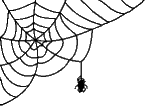|
|
| Author |
Message |
| rob_scott92 |
This post is not being displayed .
|

rob_scott92
Could Be A Chat Bot

Joined: 28 Mar 2009
Karma :   
|
  Posted: 16:33 - 15 Apr 2009 Posted: 16:33 - 15 Apr 2009  Post subject: How exactly do CDI units work? Does anyone know? Post subject: How exactly do CDI units work? Does anyone know? |
  |
|
hi everyone
my 1982 suzuki gs 125z is not running, i suspect its the CDI unit. does anyone know and understand how these work? i understand that there is a pulse sent to it and that the CDI manages it somehow to send a voltage to the ignition coil and that creates big good spark  , but thats pretty much the extent of my knowledge, and i'm not even sure if thats completely right , but thats pretty much the extent of my knowledge, and i'm not even sure if thats completely right  . .
any help would be great! 
thanks
Rob |
|
| Back to top |
   |
You must be logged in to rate posts |
|
 |
| Dilusi |
This post is not being displayed .
|

Dilusi
Borekit Bruiser
Joined: 08 Oct 2006
Karma :     
|
  Posted: 16:40 - 15 Apr 2009 Posted: 16:40 - 15 Apr 2009  Post subject: Post subject: |
  |
|
|
|
| Back to top |
  |
You must be logged in to rate posts |
|
 |
| Kickstart |
This post is not being displayed .
|

Kickstart
The Oracle

Joined: 04 Feb 2002
Karma :     
|
  Posted: 16:42 - 15 Apr 2009 Posted: 16:42 - 15 Apr 2009  Post subject: Post subject: |
  |
|
Hi
Electronics wise I don't know.
However the basic idea is that the cdi unit gets a pulse to tell it when the engine reaches a certain point. From a series of these it knows the rpm. Knowing the rpm it can calculate when it wants to fire a spark, which might be X degrees after the pulse. The coil gets a constant feed of current, and to trigger the coil to discharge that constant feed is briefly interupted by the cdi unit.
All the best
Keith
____________________
Traxpics, track day and racing photographs - Bimota Forum - Bike performance / thrust graphs for choosing gearing |
|
| Back to top |
   |
You must be logged in to rate posts |
|
 |
| rob_scott92 |
This post is not being displayed .
|

rob_scott92
Could Be A Chat Bot

Joined: 28 Mar 2009
Karma :   
|
  Posted: 16:45 - 15 Apr 2009 Posted: 16:45 - 15 Apr 2009  Post subject: Post subject: |
  |
|
orite thanks kickstart, i realise now it may have been easier to check google but thought that theres many experts on this site, might have been worth checking here first!
thanks   |
|
| Back to top |
   |
You must be logged in to rate posts |
|
 |
| finpos |
This post is not being displayed .
|

finpos
World Chat Champion
Joined: 13 Sep 2005
Karma :   
|
  Posted: 17:17 - 15 Apr 2009 Posted: 17:17 - 15 Apr 2009  Post subject: Post subject: |
  |
|
In it's simplest form it's a big capacitor (i.e. tiny battery) with a transistor (i.e. switch) connecting that capacitor to the ignition coil.
The capacitor is charged by a dedicated coil in the generator. The ignition switch/kill switch earths this coil, so when the ignition is off the capacitor cannot charge.
There is a second sensor coil (or a hall effect (magnetic) sensor) next to the flywheel at a few degrees before TDC. This sensor is connected in turn to the transistor. When the sensor coil is triggered, the transistor opens up discharging the capacitor through the ignition coil, creating a pulse. Being a coil, it does what coils do when pulsed, that is creates a big spark on it's output. Multi-cylinder engines have additional sensors placed around the flywheel.
In order to advance the ignition as the revs go up, there is a bit of additional electronics in there that delays the signal from the sensor to the transistor depending on how fast the signals are coming in. This actually works upside down, slow pulses are delayed, fast pulses happen straight away.
As such, if you can use a meter, you should be able to measure all the input and outputs to the CDI to get an idea if it is working. Of course, it's much easier to swap one in that you know works!
f. |
|
| Back to top |
  |
You must be logged in to rate posts |
|
 |
| reckless_b |
This post is not being displayed .
|

reckless_b
Trackday Trickster
Joined: 22 Feb 2009
Karma :  
|
  Posted: 16:18 - 16 Apr 2009 Posted: 16:18 - 16 Apr 2009  Post subject: Post subject: |
  |
|
Hi Rob, go to
www.dansmc.com/MC_repaircourse.htm
its a fullish workshop training guide, it has a section on electonic ignition which should help, loads more aswell. 
____________________
40 years on the road on and sometimes off bikes with a very recent OFF |
|
| Back to top |
   |
You must be logged in to rate posts |
|
 |
Old Thread Alert!
The last post was made 16 years, 249 days ago. Instead of replying here, would creating a new thread be more useful? |
 |
|
|





























 rating
rating rating
rating